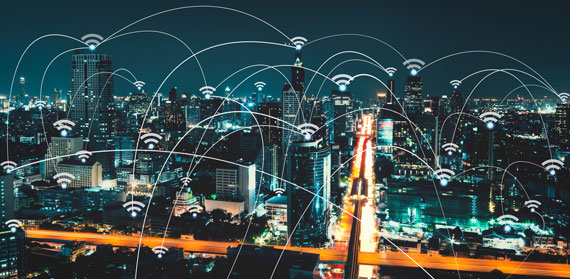Guest post by Dr. James Shuttleworth, Coventry University
On Thursday, December 14, three Republican politicians voted to overturn the US’s rules on net neutrality – sparking a chain of events that could see hundreds of millions of Americans’ access to the internet changed for the worse.
The controversial vote by the Federal Communications Commission repealed the regulations that were designed to protect an open internet and ensure the fundamental backbone of modern life cannot be manipulated by those with the money to pay for it. In practice, the regulations mean internet service providers (ISPs) must treat all online data the same and not discriminate against or charge differently depending on the user, website or application.
They came into force in 2015 during the Obama administration to replace a variety of regulations that governed how the internet worked in America. But without these net neutrality rules, a two-tier, or ‘fast-lane’ internet system could develop dependant on how much companies were willing to pay for the benefit of quicker connections. And this could affect millions of people’s access to the web for healthcare, finding jobs, education and other key services, as well as, of course, access to entertainment and news. Frankly, it’s a terrifying prospect and goes against everything that is positive about the World Wide Web.
The result of the vote was, sadly, no surprise. The commission split fell firmly along party lines. The three Republicans on the FCC voted against net neutrality, while the two democrats wanted to save it. The decision had the support of the Trump administration, which, in my opinion, isn’t surprising given its favouring of the rich, their donors and anything that undoes Obama-era progress. Ajat Pai has made it his mission to end net neutrality ever since he was named FCC chairman by Donald Trump in January. He even dressed up as Father Christmas for a bizarre video titled ‘7 things you can still do on the internet after net neutrality’. But the FCC vote was no Christmas present for many people.
There is almost no support for repealing net neutrality from the public, but nearly full support from the largest ISPs. The fear for Americans is that companies will do exactly what they said they would do if it weren’t for net neutrality. They will extract more money from their customers and content providers for a better service. And that could be devastating for anyone who relies on the internet in their personal or professional life. There will be a lot of legal wrangling before net neutrality is finally dispensed with in America. This debate will run and run, and there’s a worrying chance that other countries may follow suit.
So far, Canada has been quick to distance itself from the US’s decision. The country’s Minister for Innovation, Science and Economic Development, was quick to say: “An open internet is critical to our democracy. Our government will continue to stand for freedom of expression, equality and diversity, no matter what other jurisdictions decide.”
It’s not clear if the UK will follow the US’s example. We have net neutrality over here as a result on the EU’s Regulation on Open Internet Access, although this, of course, could be affected by Brexit. We also have a more competitive broadband market than the US so it’s easier for customers to switch companies if they don’t like the service they are getting. But as a knowledge economy and a country that produces a great number of artists, thinkers and creative people, we could seriously harm our future if these people are denied free access to information.
The possibility of the UK ending open internet rules is frightening, but with the move in the USA being framed as an increase in freedom and our country currently deciding which aspects of EU regulation will remain in some form post-Brexit, it’s a mistake that we might just find ourselves making.




Comments are disabled